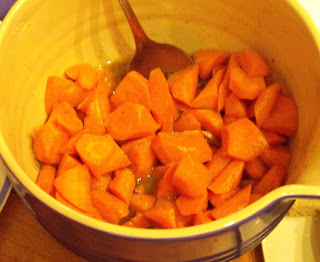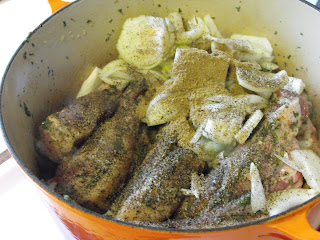For this recipe we turn once again to Lucian's amazing work, The True History. At book I section 7, Lucian and his shipmates land on an uncharted island and discover a river of white wine. The fish they catch in this river of wine make them so drunk when they eat them that they decide to temper these Wine Fish with fishes caught in water. See, because in the ancient world people used to temper wine with water, Lucian tempers Wine Fish with Water Fish! Lucian is funny stuff! So, inspired by Lucian's lead, we will make Wine Fish and temper them with Water Fish!
Lucian's Wine Fish Tempered with Water Fish
2 largish beautiful fish recommended for poaching to you by your local fish monger
8-10 fresh sardines
white wine
bay leaves
lemon
thyme
olive oil
1) First, prepare the Water Fish. If needed, gut and clean the sardines. If you find that off-putting, make sure to buy already cleaned sardines. Then put a wedge of lemon and some fresh or dried thyme inside the cavity of each. Rub with a little bit of olive oil and place on a pan. At this point you can turn on the broiler in your oven.
2) Now, lets get going on the Wine Fish. Place your fish in a sauce pan and cover with white wine. No water, only wine! These are fishes that live in wine and must take on a very strong wine flavor for this dish! I also threw in a few bay leaves for flavor.
3) Turn the heat up to mid high. You do not want to boil the fish. You only want to get the temperature up to around 180 degrees or so, which is around when teeny bubbles are coming to the surface. Once you get to this temperature, adjust your heat to keep the temperature at this point for about 10-15 minutes, depending upon how big your fish are.
4) While your Wine Fish is poaching, put your Water Fish under the broiler until they are cooked - which will only take 4-5 minutes.
5) Then place your broiled Water Fish on a serving platter and place your cooked Wine Fish on top!
You are now ready to eat like Lucian on his uncharted island! Just be careful not to kiss the Vine Ladies that live on the island because they will never let you go! There will be more Lucian recipes to come. In fact, at some point this semester some of my colleagues are going to help me recreate Lucian's entire battle between the Sun-ites and Moon-ites in food! Not only is that battle an incredible piece of satire about historiography - it will make an amazing banquet! I am very excited. Here is today's dish again at a different angle:
Now, be careful with this dish! Make sure everyone present tempers bites of Wine Fish with Water Fish so that everyone does not get too drunk. Fish poached in wine is wonderfully delicious and the contrast in textures with the crispy sardines will make you very happy. Don't forget to eat the cheeks, they are the best part. Enjoy!




















